My dear friends
January always seems to me to be a space of difficult tension. My spirit is often driven by a deep, hungering restlessness for order or change, while my body and heart are often just weary. Christmas is feast and festival, an outpouring of self that is often our reach for heaven, for ourselves and children. But we drift down after that taste of transcendcne into the immediacy of the not-yet world that needs to be re-ordered and cleaned, brought back again to beauty from the edges of disintegration. There’s still a lot of work to be done, and we still dwell in the broken place, and… it’s winter. The light is brief. Warmth a thing to hoard.
Perhaps our strength is small.
Mine is. I find this year that I have no choice but to meet the tension, this immersion in weariness with a greater grace than I have before. I cannot will my body into good behaviour. I cannot undo long colds or weary minds or a strained soul by the insisting. I loved Katherine May’s book Wintering. I found her conclusion wanting in that I think she does not see the fragility we find in ourselves to point to any larger reality, but I think her broader theme of attending to this moment, this season in its gift, this body in its frailty and sadness, is a beautiful one.
What may I find here, in the shadow and hush?
I got quite tickled the other day when one of my children described something to me as ‘fragile’, an unexpected word from the mouth of my three-year-old. I realised I have used that word, ‘fragile’, and it’s sister ‘frailty’ a little more often in the past few years. I am aware of the borders of my capacity. The limits of my strength. The complexities of parenthood, the roiling of the wider world, the lack of sleep will do that to you. And rather than rage against them, I find myself learning how to steward and treasure the strength I do have, recognise my need and how to meet it when my stamina fails.
The words of Psalm 131 hum in my thought:
O Lord, my heart is not proud, nor my eyes [a]haughty; Nor do I involve myself in great matters, Or in things too difficult for me. Surely I have composed and quieted my soul; Like a weaned child rests against his mother, My soul is like a weaned child within me. O Israel, hope in the Lord From this time forth and forever.
The secular world sees frailty as the sign of our someday death and I think that comes clear each January when diets and workouts and plans for success become the marketing points of the world. Weakness and sickness, the incapacity to work our will upon the world point, for many, to the dreaded fact that one day our strength will fail entirely. That death is our ultimate end.
But as one who does hope in the Lord, I know this not to be true, and in that knowledge I am given the power and choice to resist the frantic, yearly scrambling of a broken world after strength and discipline and eternal youth. I know that my frailty does not proclaim my death, but rather proclaims my nature as a finite, created being, dependent upon the generosity of Love for strength, for restoration. We’ve just emerged from the exultations of Christmas, a season in which we celebrate the coming of that mighty Power into our frailty in order to save us precisely from the death that so many fear.
So, I’m trying to accept my weariness this year as precisely the place of the Christ child’s continuing arrival. He didn’t stop arriving at Christmas, he grows in us, in the world, just as the light now does as winter slowly, slowly gives way to spring. My work in this season isn’t so much to conquer my frailty as to make it the space of my expectation (rather than my despair). To daily open my hands and say have mercy on me, Lord Jesus, and trust that he will. That his mercy will mean the creativity, the self-discipline, the courage I need to go slowly and with generosity through this darkened, weary season in the wintered world.
My soul is like a weaned child within me, sure of help. May it be so in you as well.
Books
We have a tradition during Christmastide, that on the feast day of Saints Basil the Great and Gregory Nazianzen (2nd January), we celebrate Christian scholarship by telling the children a little about the lives of these great two scholars and… buying everyone a book at a local bookshop. Everyone gets to choose their own, something they genuinely want (with, perhaps, a little nudging toward the artistically or literarily excellent from our end). My own pick this year was The Place of Tides by James Rebanks. Many of you might know him as the author of The Shepherd’s Life: A Tale of the Lake District. The simplest way I can think of to describe Rebanks (and of course, it doesn’t do justice to either author mentioned) is as a Cumbrian Wendell Berry, with a modern irreverence and occasional insecurity. They both write eloquently and with deep affection of their work in the same tradition of local, agrarian, communal belonging and creativity, their books rooted in their actual lives as farmers and shepherds.
The Place of Tides is different, though. In it, we follow Rebanks as he takes a hiatus from exactly the local, rooted life he has written about after a season of deep depression. The book opens with him imagining the end of the world… because he sees so much disintegration and destruction around him. How can he keep a value for the small, sustainable life he keeps with his family when the wider world runs roughshod over every precious thing? He travels to Norway, living on a remote island with an elderly ‘duck woman’ whose family for generations has collected the ‘eider down’ that is so famed for its lightweight warmth. Her work is ancient, the world around her marked no less than Rebanks’ by the destructive, diminishing forces of modernity, yet there is a fierce hope and will within her that Rebanks hopes will in some way relight the embers of his own capacity to continue the work he came to by his own heritage.
It’s a thoughtful, windy, reflective book about how we make our lives in the face of challenge and decline, about what heritage is, and how we may be faithful to something that seems not to have a place in the modern world. I found it clear, stirring, and though I haven’t reached the end of it yet, hopeful. I’m wishing there was more reflection on the heritage of relationship as well as place, but I still find the meditations rich. A fitting read for my own sometimes weary self as I look upon a tumultuous, insecure world and then turn to… the crafting of this small vicarage life as shelter and hope for those within my own small circle of reach and belonging.
Beauty
Well, we’ve had snow. Which everyone here counts as wildness and miracle. I’ve popped a few photos in the vicarage gallery below. But the daily beauty that has brought me brief moments of breath and joy has come to me in the evening, when I sit in my reading chair to put Elanor to sleep. I have an icon there of Mary cradling Jesus, the ‘icon of tenderness’ as I’ve sometimes seen it titled (similar to the one above). After a conversation with a priest and friend over the summer in which I confessed the difficulty I often have in coming to a place of deep devotion, even sometimes of praying at all in the midst of my weariness, he suggested I simply say the Jesus prayer and let my eyes rest on an icon.
So I have. I say the simple words, Lord Jesus Christ, Son of the living God, have mercy on me, a sinner. I gaze upon that image of cradled affection, seeking to cradle Christ in my own heart, to find him in the (often squirmy) child I hold in my arms, to allow myself to know his own cradling of me.
Then I listen to choral music. Elanor and I do together. I’ve always sung to my babies; hymns, folk songs, psalms, but Elanor has responded with an instant, eye-widening attention to choral music since she was a few days old. I’m tired most evenings, so I’ve started to just let us listen together. I often use this playlist, and add to it whenever I find something new. It’s small. Sometimes I’m too tired even to manage these rituals, but this chosen beauty, the tactile, immediate, eye and ear engagement has been restorative to me.
Theology
I’ll be honest. I haven’t had much time for theological reading of late. I’ve just given myself David Bentley Hart’s new book on consciousness All Things Are Gods: The Mysteries of Mind and Life for Christmas, so you’ll see some of that here soon. But my theology these days is mostly by poetry or what I hear in church. So I’ll leave you with the Epiphany collect from the Book of Common Prayer:
O GOD, who by the leading of a star didst manifest thy only-begotten Son to the Gentiles; Mercifully grant that we, who know thee now by faith, may after this life have the fruition of thy glorious Godhead; through the same thy Son Jesus Christ our Lord. Amen.
Friends, may the snowscape wideness of these wintered days bring spaciousness to your soul. Lean into the gentle, wintered light. Go slowly. Go deep into the burrows of heart and bone. Rest in a love that cradles soul and body in seasons of rush and those of gathered exhaustion. May light burgeon each day a little more as you watch from the inmost rooms of your heart and home, may you treasure each lengthened minute of sun, reach in psyche and soul for the gathering of spring upon the world’s horizon. May good good books and beauty companion your way.
Until next time,
Sarah
PS - There are affiliate links in this post, which may throw a few pennies of compensation my way. As you know. All toward the vicarage library…
From Snowy Night by Mary Oliver:
aren’t there moments
that are better than knowing something,
and sweeter? Snow was falling,
so much like stars
filling the dark trees
that one could easily imagine
its reason for being was nothing more
than prettiness. I suppose
if this were someone else’s story
they would have insisted on knowing
whatever is knowable – would have hurried
over the fields
to name it – the owl, I mean.
But it’s mine, this poem of the night,
and I just stood there, listening and holding out
my hands to the soft glitter
falling through the air. I love this world,
but not for its answers.
-Mary OliverVicarage views…
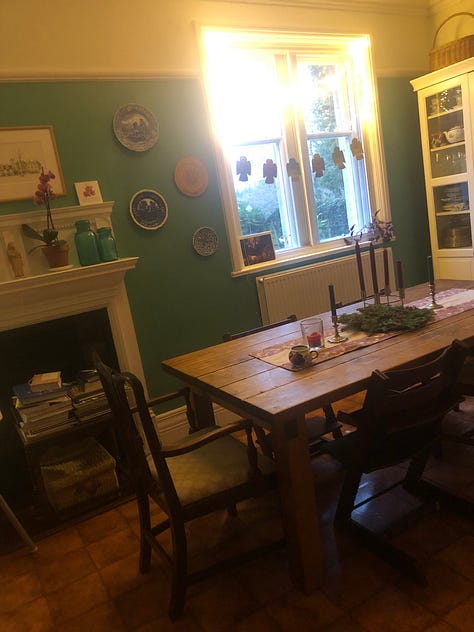

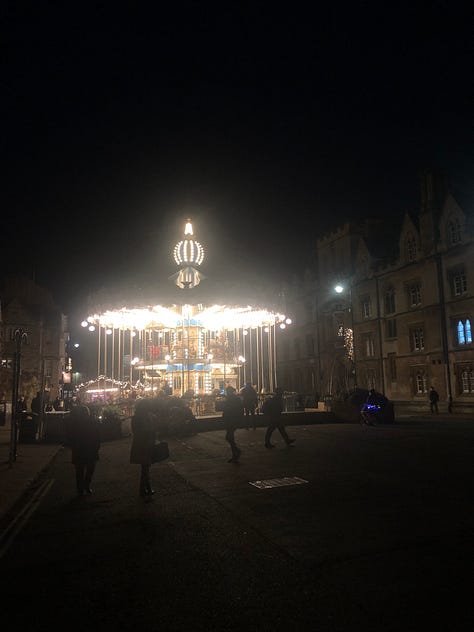
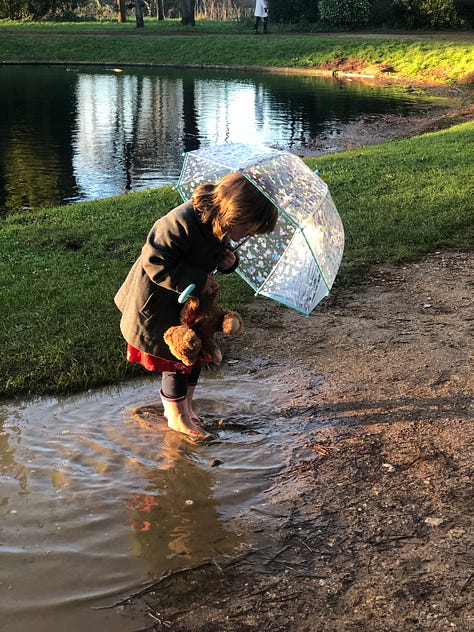
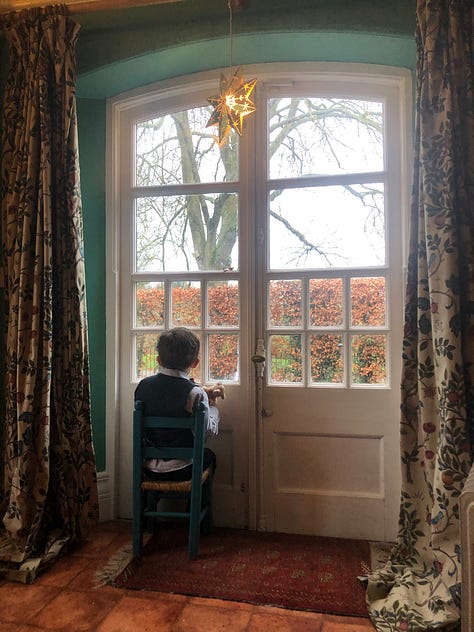
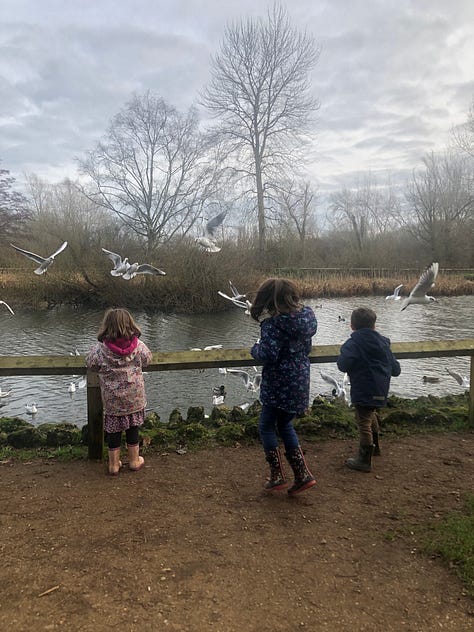
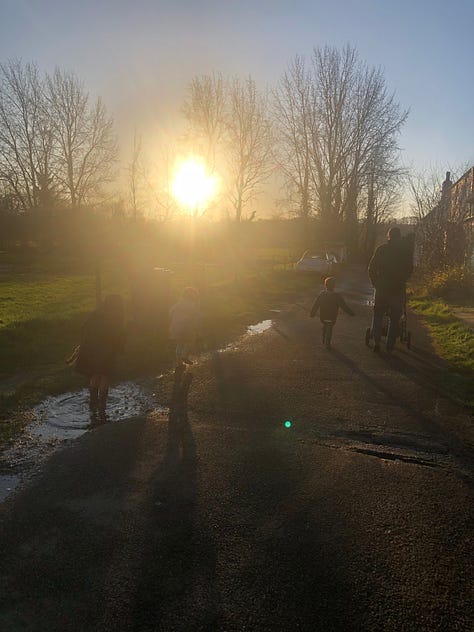
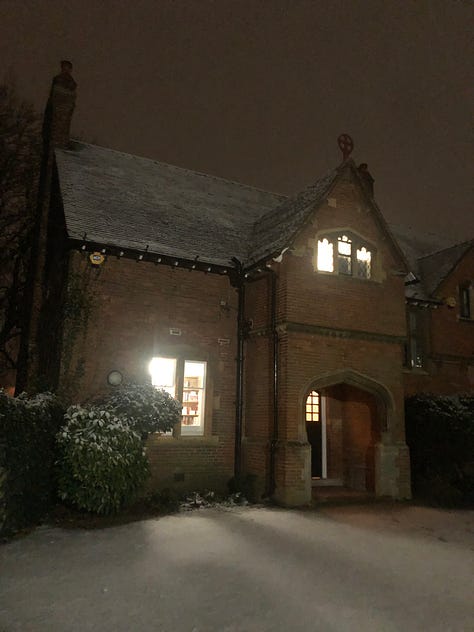
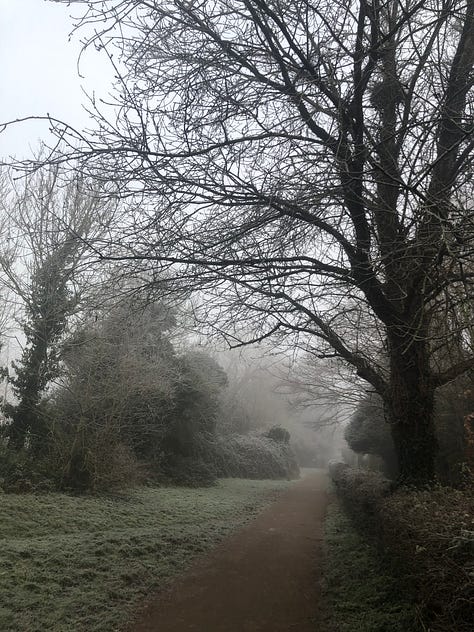


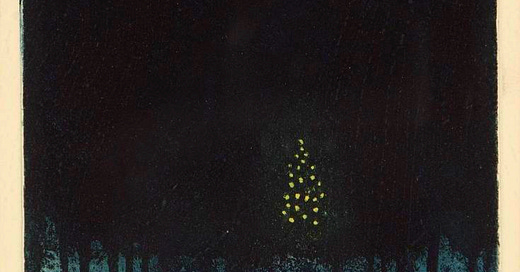



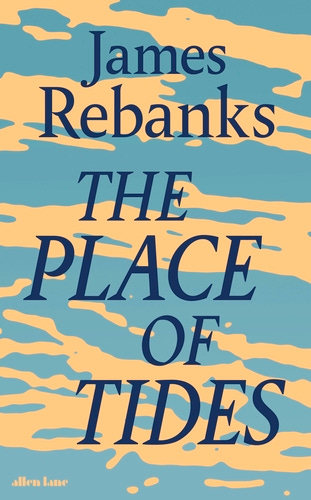
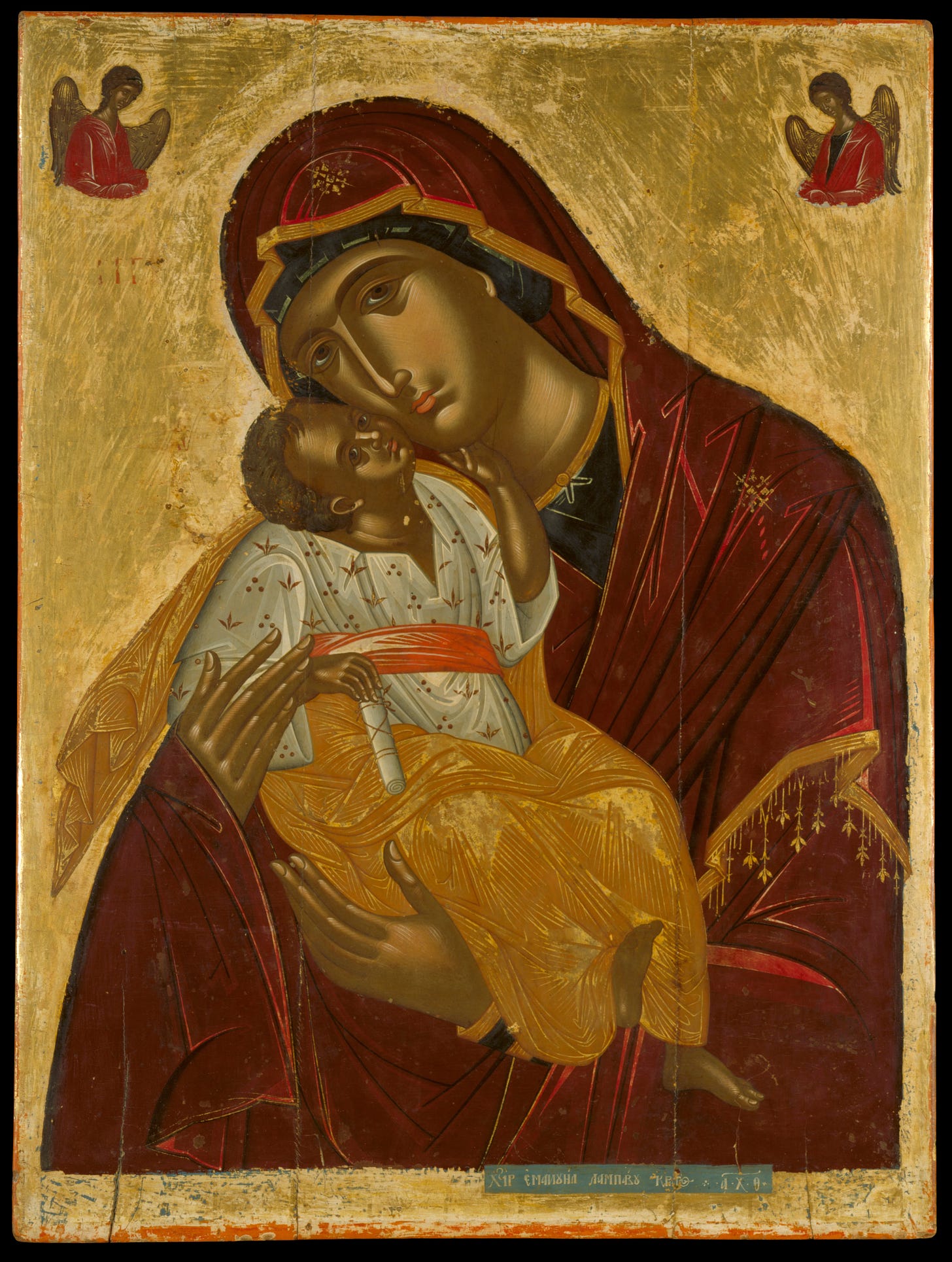
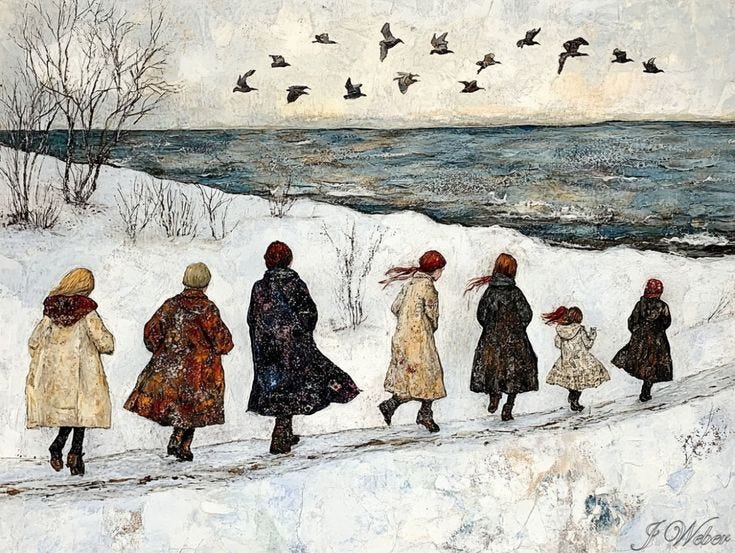
I love reading this, Sarah. Loving the photos as well that we can picture where you are physically as well as mentally. Your writing is delightful and full with meaning.
Sarah, this was so encouraging to read. The way you started ended the piece - you said just how it is...this putting things back in order after the intensity of feasting, this carrying on in a wintery season, this reaching for the hope God provides in the gospel in the midst of it. I am a homeschool mother of four boys, and your words felt so resonant. Thank you!